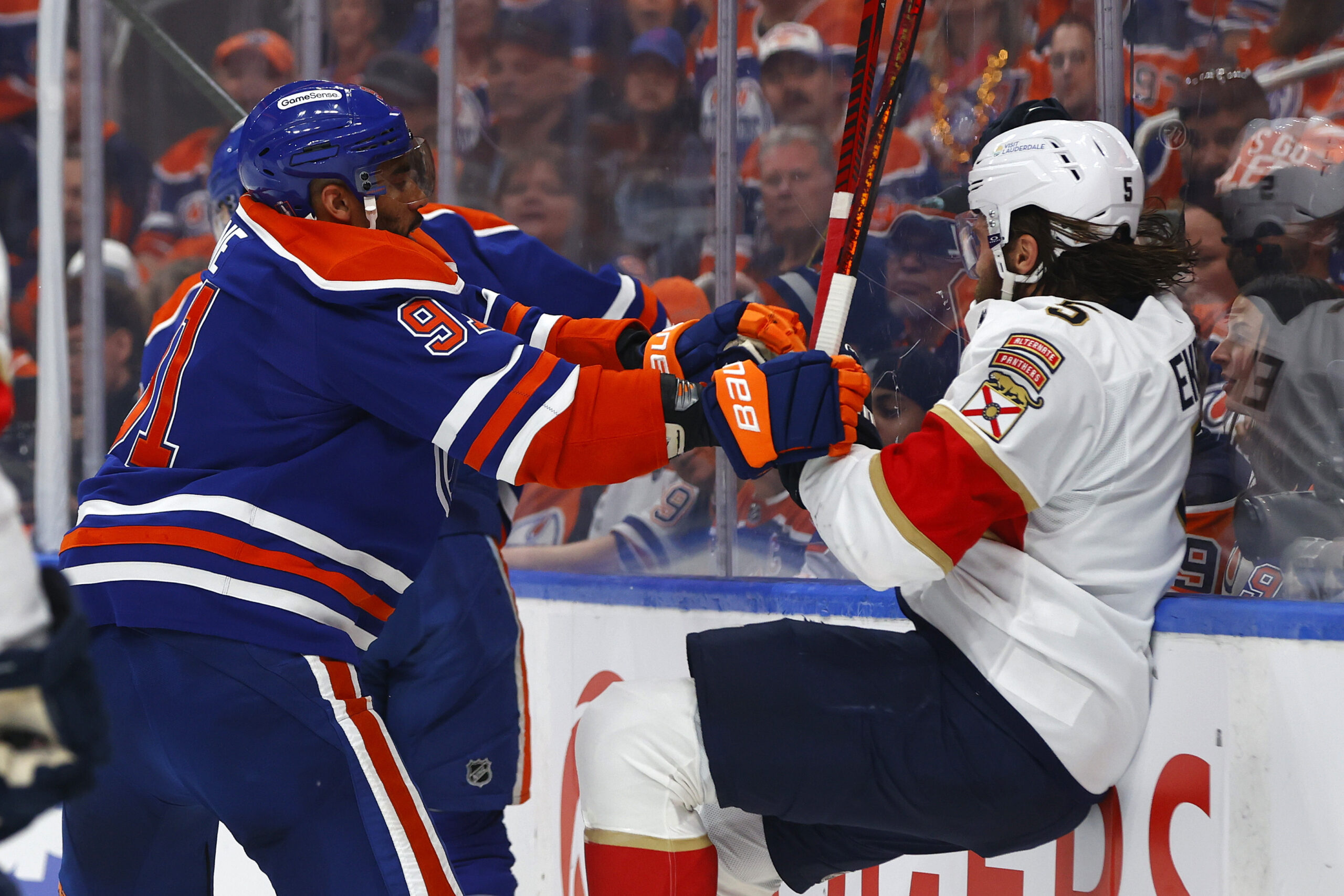

The Edmonton Oilers' recent Stanley Cup Final defeat against the Florida Panthers has triggered a period of intense self-reflection and potential roster upheaval. Among the players facing an uncertain future is veteran forward Evander Kane, prompting the question: Is it time for the Oilers to move on?
Kane's tenure in Edmonton has been marked by both high-impact performances and considerable challenges. After joining the team in 2022, he quickly established himself as a valuable offensive contributor, bringing a mix of skill and physicality to the Oilers' top-six forward group. However, the 2024-25 season was largely lost due to multiple injuries, including surgeries to repair torn hip adductor muscles, hernias, abdominal muscles, and a knee issue. He returned for the playoffs, notching 6 goals and 6 assists in 21 games, but his performance was inconsistent, and he was handed a 10-minute misconduct in Game 6 of the Stanley Cup Final, further fueling speculation about his future with the team.
Several factors contribute to the argument for the Oilers to consider trading Kane. Firstly, his contract carries a $5.125 million cap hit for the 2025-26 season, a significant amount for a team facing salary cap constraints. The Oilers have under $12 million in available cap space and several key players, including Evan Bouchard and potentially Connor McDavid, are due for new contracts. Creating additional cap space by trading Kane would provide greater flexibility to re-sign these players and address other roster needs. The salary cap is set to rise to $95.5 million next year, and up to $104 million in 2026-27, but with the extensions needed for their star players, cap space is still tight.
Secondly, Kane's inconsistent playoff performance and the physical nature of his game, which sometimes leads to penalties, have raised concerns about his overall value to the team. While he brings a much-needed physical presence, his undisciplined play at times can be a detriment. In the Stanley Cup Final, Kane's penalties and subsequent ejection from Game 6 highlighted these concerns, especially when he said the Panthers "seem to get away" with more penalties.
Thirdly, moving on from Kane aligns with the Oilers' need to build a deeper, more reliable supporting cast around Connor McDavid and Leon Draisaitl. The team's reliance on its star players has been a recurring issue, and adding depth would make them a more formidable and consistent contender. Trading Kane could bring in valuable assets, such as draft picks or prospects, that could be used to bolster the team's overall depth.
However, there are also arguments for keeping Kane in Edmonton. When healthy and focused, he is a proven scorer who can provide a unique blend of skill and physicality. His presence in the lineup adds a dimension that few other Oilers players can replicate. Also, Kane's return for the playoffs after major surgeries showed his commitment and resilience, qualities that are valuable in a contending team. Coach Kris Knoblauch noted that Kane looked even better upon his return than he did in the previous year's Final, praising his improved skating and explosiveness.
Ultimately, the decision on whether to move on from Evander Kane will depend on Oilers General Manager Stan Bowman's assessment of the team's needs and the potential return in a trade. Kane has a 16-team no-trade list, which could complicate matters. NHL insider Elliotte Friedman believes there will be a market for Kane, but finding the right fit for both the player and the team will be crucial. The Oilers explored trading Kane before the trade deadline, but his health status at the time made it difficult.
As the Oilers navigate this critical offseason, the Evander Kane situation represents a significant decision point. Balancing the need for cap space, roster depth, and Kane's potential contributions will be key in determining the team's path forward.